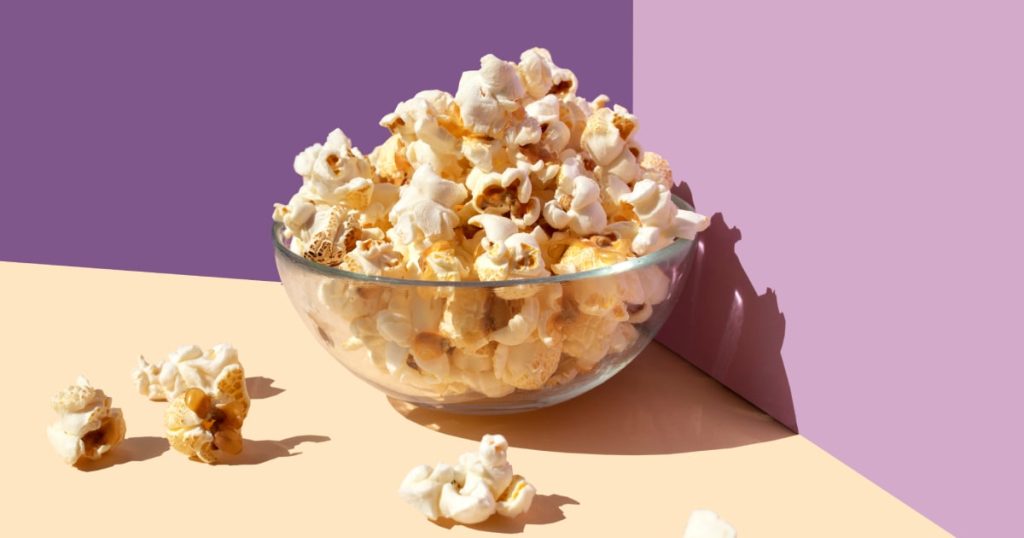Popcorn is a whole-grain snack that comes from a specific type of corn kernel that puffs up when heated. It is classified as a fruit, vegetable, and a whole grain depending on when it is harvested. Popcorn is a healthy snack that is low in calories, fat, and gluten-free. It is a good source of dietary fiber, vitamins, minerals, and antioxidants, such as B vitamins, potassium, folate, manganese, and zinc. The fiber content in popcorn helps with satiety, blood sugar control, cholesterol, and weight management. It also contains antioxidants that are linked to better digestive health and improved blood circulation.
One serving of air-popped popcorn, unsalted, contains about 100 calories, 3 grams of protein, 18 grams of carbohydrates, 1 gram of fat, and 3-4 grams of fiber. Popcorn is considered a carbohydrate and can be relatively high in carbs, but it is a complex carb that does not significantly spike blood sugar. The net carb count is about 14 grams, and popcorn is considered a low glycemic food. To make popcorn healthier, it is best to prepare it using an air-pop popcorn machine or stovetop with minimal use of oil. Butter or oil should be used sparingly, and unsalted popcorn is recommended to keep the salt content low. Any added sugars should be limited or avoided to keep popcorn healthy.
The healthiest popcorn is air-popped, unsalted, and low in saturated fats. Buttery toppings high in saturated fats and large amounts of salt or high-sodium seasonings should be avoided. Popcorn with excess butter or oil, high-sodium seasonings, added sugars, and other additives can be less healthy. While popcorn is generally considered healthier than potato chips due to its protein and fiber content and lower calories and fat, the healthiest option depends on how the popcorn is prepared and topped. Healthy toppings for popcorn include spices or herbs that add flavor without extra calories, sugar, or salt, such as nutritional yeast, garlic, black pepper, dried herbs, seaweed flakes, paprika, garam masala, and cinnamon.
Overall, popcorn can be a healthy snack when eaten in moderation as part of a balanced diet. It is a good source of fiber, vitamins, minerals, and antioxidants, and is naturally low in calories, fat, and sugar. By choosing air-popped, unsalted popcorn with healthy toppings and avoiding excess butter, oil, salt, and sugar, popcorn can be a satisfying and nutritious snack option.


